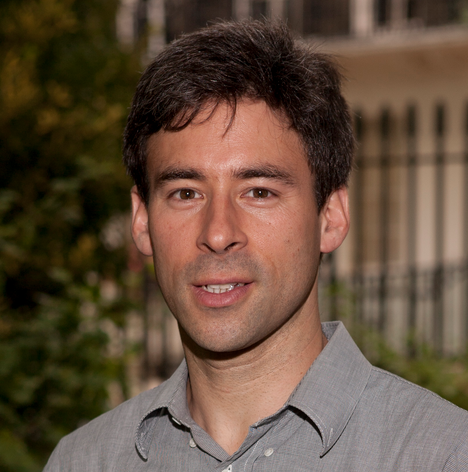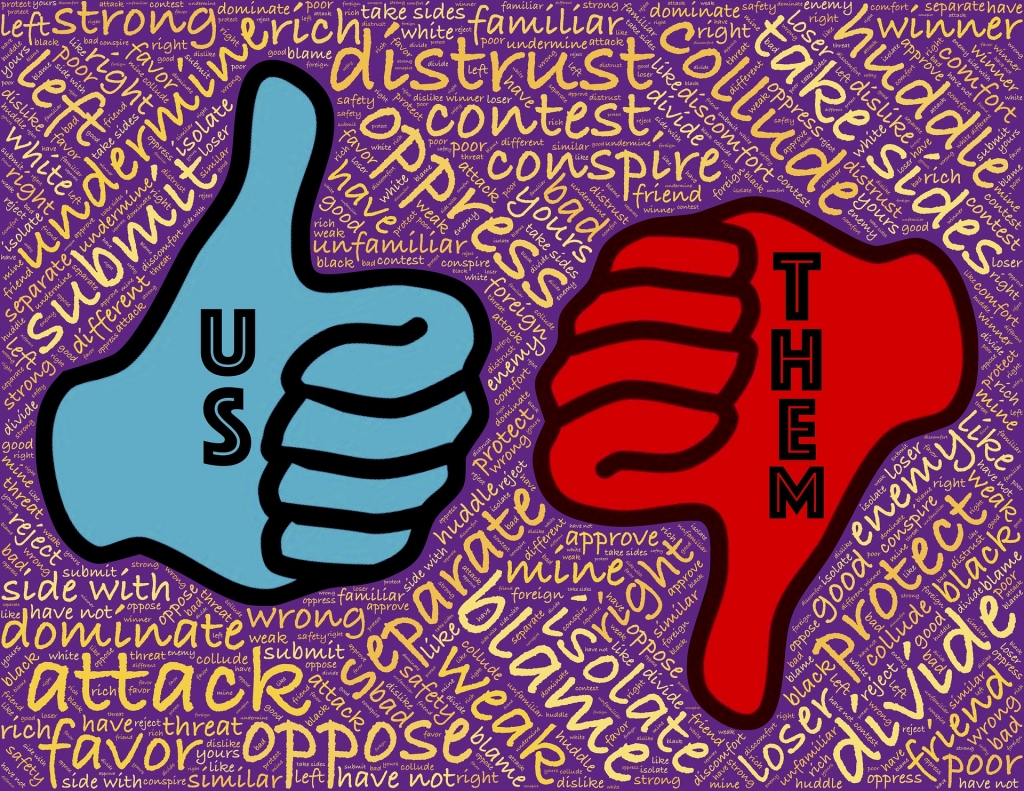 As Donald Trump forms one outrageous policy after another, and as the UK government remains unclear as to what future it is pursuing for the country post-Brexit, Eric Kaufmann discusses the factors that led people to back populist rhetorics with editors Chris Gilson and Artemis Photiadou.
As Donald Trump forms one outrageous policy after another, and as the UK government remains unclear as to what future it is pursuing for the country post-Brexit, Eric Kaufmann discusses the factors that led people to back populist rhetorics with editors Chris Gilson and Artemis Photiadou.
Recent developments in Western politics – the most recent being the US travel ban – seem to come from an opposite universe, in that we used to see the West as being liberal and secular. Having researched cultural values, are these developments as shocking to you or did you see this coming?
I don’t think any of us were good at predicting developments but I do think there were factors one could have pointed to. What we see is a growing polarisation of values in Western societies. So while the political divide used to be about Left vs Right, about economic redistribution and the free market, the new emerging polarisation is what you may call culturally open vs closed, or cosmopolitan vs nationalist. It’s a cultural war but it’s really over the “who are we” question – who are we as a nation.
Is American populism (pro-Trump) the same as British populism (pro-Brexit)?
I think there are many similarities. In looking through the survey and election data I find a lot of parallels: immigration, to some extent terrorism, and the Syrian refugee issue – there is no better issue to pick up polarisation over Trump than views on Syrian refugees. And we also see with Brexit that immigration was the number one issue driving the vote. These are not the only issues but most are value-based ones.
You also have the impact of the split between those who think the world is a dangerous place and want to be safe, and those who are oriented differently and like novelty and exploration. And so that divide turns very strongly on the death penalty question – those who are pro death penalty are also pro-Brexit and pro-Trump. So we see similar attitudes. But the immigration question is important because it explains the “why now” question – we’ve always had people backing the death penalty or being against it.
So why now? The UK has had waves of immigration since the 1950s and the US has historically been a nation of immigration. And would it be fair to say that continuity sounds like a euphemism for resentment for those who are different to the majority – culturally or perhaps in terms of opportunity?
 You need to look at each country and the nature of the flows. The proportion of those in European countries – of foreign-born – we haven’t seen that proportion in the past. In the US, the last time we had over 13% foreign-born was in 1900-1920, a period of quite intense, anti-immigration politics. So in a way the more surprising thing would have been if there was nothing happening.
You need to look at each country and the nature of the flows. The proportion of those in European countries – of foreign-born – we haven’t seen that proportion in the past. In the US, the last time we had over 13% foreign-born was in 1900-1920, a period of quite intense, anti-immigration politics. So in a way the more surprising thing would have been if there was nothing happening.
The resentment – I think it’s largely driven by the cultural dimension you mention. I don’t think the resentment of the elite is based on the fact that people have more money or opportunity. Economic resentment is not really driving it. I think the resentment is of a perceived cosmopolitan elite that has brought these cultural changes. So it’s focused more on a liberal cultural and political elite rather than towards someone like Donald Trump, who is very elite in an economic way but not in a cultural one.
Is there a demographic divide in the distribution of personal values?
Definitely. Younger voters, people with university degrees certainly would be more liberal on all these cultural dimensions with a few exceptions. But the important point is that those demographic factors actually only explain a small share of the variation in attitudes. So you have people with degrees who are actually conservative, and people without degrees who are very cosmopolitan.
Education is one of the most important demographics. Not income, not class – education is what splits the data, more so than age. But even education is not as important as values. If you ask a specific question such as support for the death penalty, those will come out stronger than education [in predicting right-wing populist support]. Education is important because it signals a worldview, rather than because it is a marker of income, or class, or status in that way. So education is linked into that cultural worldview divide that I talked about.
How can the UK government reconcile the worldviews of these two groups, which assign opposite definitions to concepts like openness and diversity?
I think the big divide is over immigration and national identity. What the government and centrist parties need to do is to start having different messaging for different parts of the population. So when addressing a white liberal or diverse audience, you can talk about Britain becoming more diverse; but when addressing culturally conservative, mainly white audiences then that’s not a good idea – it tends to stoke fear and resentment. So what you want to do is talk about reassurance – that there is immigration but if we look historically immigrants have tended to assimilate and actually things aren’t going to change very much.
Some of the research I have done also shows that when you give a narrative of assimilation, UKIP voters, hard Brexit voters, and white working-class voters without degrees tend to respond very well. So the hard-core opposition to immigration will decline a significant amount. And part of this is to say that people aren’t all alike and you have people who just do not value diversity.
So I think we need to recognise that you actually need these different messages, because national identity is not unitary. People can identify with a country in many different ways and some people might identify with Britain through their many generations of ancestors in Britain. That’s not a problem, so long as they don’t insist that people who don’t have that aren’t British. There are many ways to be British or American and we need to allow for that.
Will cutting off the flow of immigration counter right-wing populism?
I don’t think cutting off immigration is an option given the many needs of modern societies. Granted we can talk about immigration levels and that’s an important debate and I think there has to be an accommodation of different needs – a happy medium. But I think that more important than that is the “who are we” question. I don’t think it’s enough to talk about where is France headed, where is Britain, where is America going, or what does diversity and immigration mean for France or Britain or America. The real question is [not so much what does it mean to be British but] what does it mean to be white British in an age of large-scale migration. The question is, as a member of the ethnic majority, where do you see yourself and your group moving?
Politicians have not been able to address that and that’s part of where I come up with this idea of having different messaging for different people. You need to get people reassured that we won’t see a radical change, it’s not that society will get more and more diverse and the majority will shrink and shrink and shrink – which is kind of the way people think it is. We need to counter this story of rapid transformation and replace it with what’s fairly likely: modest transformation and things staying the same.
How easy is it to change someone’s beliefs – people are now seeing that their concerns over immigration can be turned into racist policies, like the US travel ban. Would it be enough to make someone change their stance?
Social science research would suggest that it is very difficult to change people’s beliefs. That’s not to say that at the margins some people won’t be turned off by those current policies. But I think what’s likely to happen is actually a deepening of the divide and a deepening of polarisation, partly because we don’t have a centre ground that seems to be more nuanced on this question of racism.
A lot of the people who say the Muslim ban is racist – which it is – also call the wall with Mexico racist – which I don’t think it is. You can be in favour of a wall and not be racist, whereas it is not possible to be in favour of a ban and not be a racist. That’s an important distinction. And if people who support the wall say “well, whatever we support will be called racist,” they may then be desensitized and not be outraged when racist policies like the Muslim ban are put into place. That’s my concern. There should be a centre ground where we can say certain things are racist and outrageous, and other things we may not like but are not racist. Part of the problem is slinging this racism epithet around and that sharpens the divisions; each side starts to get a very one-dimensional view of the other.
Are you dealing with these issues in your forthcoming book?
The new book with Penguin will be all about the white majorities in the West in a time of ethnic transformation – how they are responding to an age of migration and ethnic transformation. And I am arguing that there are a number of responses. You get the populist anti-immigration response, trying to oppose immigration; you get a residential response in the form of white avoidance, with white majorities retreating away from diverse areas and networks; and then you also get an assimilation, an intermarriage, and contact response. And these are not mutually exclusive.
Part of what I will be arguing is that the nature of the white majority will change over time and will increasingly move to be what we would now consider a mixed-race population – most members of the “white majority” will have [an admixture of] non-white non-European background. But that doesn’t mean that they are going to stop thinking like a majority. There will be a lot more continuity than we imagine, there’s not going to be this radical shift and overhaul. But of course, the book remains to be written!
____
Note: Eric Kaufmann spoke at an event hosted by the LSE Institute of Public Affairs.
 Eric Kaufmann (@epkaufm) is Professor of Politics at Birkbeck College and is writing a book about the White majority response to ethnic change in the West (Penguin).
Eric Kaufmann (@epkaufm) is Professor of Politics at Birkbeck College and is writing a book about the White majority response to ethnic change in the West (Penguin).














